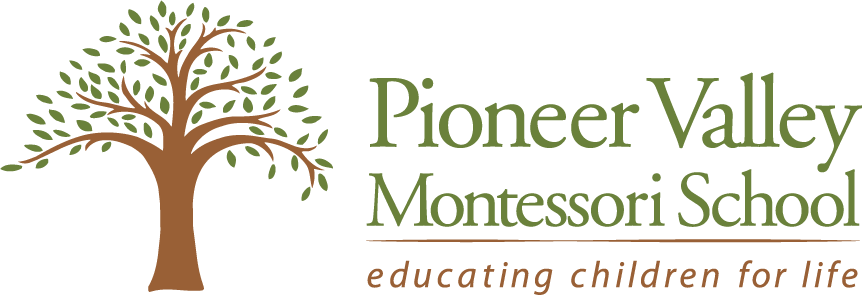Professional Development
Annual Requirements
All teaching staff are required to complete 5–20 hours of professional development annually, based on contracted hours:
Less than 10 hours per week → 5 hours annually
10–20 hours per week → 12 hours annually
20+ hours per week → 20 hours annually
At least one-third of PD hours must focus on diverse learners to ensure inclusivity and equity in practice.
Substitutes are not required to complete Professional development, but are encouraged to reach out to the Head of School if they are interested in a professional development opportunity.
Administrators must complete PD relevant to their roles and responsibilities.
EEC-licensed educators are required to complete the EEC Essentials Training annually in compliance with state regulations.
DOCUMENTATION
All staff are responsible for tracking and documenting their PD hours each year.
A Professional Development Log is maintained in the office and must be completed by the end of the school year.
Early Childhood staff must record hours both in the EEC PQ Registry (www.eec.state.ma.us/PQRegistry/) and in the office PD log.
Staff can request to be reimbursed up to $300 annually toward their professional development.
Opportunities for Growth
Faculty are encouraged to attend workshops, seminars, and courses that:
Increase cultural competence and reduce implicit bias
Deepen understanding and implementation of Montessori curriculum
Strengthen communication and collaboration skills for a positive workplace
Address developmental needs of the age group taught
Support children’s specific life circumstances (e.g., military families, dual language learners)
Opportunities that involve absence from school or carry significant costs should be discussed in advance with the Head of School. Staff may request financial support and may be asked to share key learnings with colleagues at a staff meeting.
Professional Development & Training Topics
Throughout the school year, staff are invited to suggest ideas for staff training, workshops, and seminars. Topics may include:
Montessori philosophy and practice
Early childhood growth and development
Current educational issues and research
Classroom and behavior management
Health and safety practices
Curriculum enrichment
Training may be facilitated by PVMS staff or by guest speakers from education, psychology, and related fields.
Tuition Reimbursement
Pioneer Valley Montessori School (PVMS) supports the professional growth of its employees by offering tuition reimbursement for continuing education and certification programs directly related to their role or career advancement within the school. Full-time employees with at least one year of service are eligible to apply for up to $3,000 per fiscal year, covering up to 50% of tuition and fees for accredited coursework, Montessori training through MACTE-accredited institutions, and required materials.
To qualify, employees must submit a Tuition Reimbursement Request Form prior to enrollment and, upon completion, provide proof of payment and a grade of B or higher (or Pass in pass/fail courses). Approved reimbursements are processed within 30 days. Employees are expected to remain with PVMS for at least one year after course completion or repay the funds. Reimbursement is subject to budget availability, reviewed on a first-come, first-served basis, and excludes non-accredited or unrelated coursework.
The PVMS Tuition Reimbursement Policy and the Tuition Reimbursement Request Form are available in Appendix I: Policies, Forms & Procedures of this document.
Outside Observations
Observation is a fundamental practice in Montessori education, allowing educators to study children, classrooms, and learning processes with careful attention and fresh perspective. Visiting a class at another Montessori or educational program provides a valuable opportunity to observe different environments, teaching approaches, and community practices.
For more information of observation hours as it relates to time off please see time & attendance section.
Montessori Conferences
Attending Montessori conferences, such as the Montessori Schools of Massachusetts Conference and The Montessori Event, provides professional growth, inspiration, and collaboration with educators. PVMS supports staff attendance when possible, with financial assistance varying by budget and interest. Teacher workdays are scheduled during The Montessori Event to allow attendance without disrupting classrooms. Staff who attend are encouraged to share key takeaways at Lead Teacher or All-Staff Meetings, so the whole PVMS community benefits.
Staff Meetings
Lead Teacher Meetings
Frequency: Generally bi-weekly
Attendance: Required for Lead Teachers
Purpose: To address day-to-day business and program planning.
Typical Agenda Items: Calendar updates, upcoming school events, Board and PCO news, organizational planning, and professional development opportunities.
Level Meetings
Frequency: Generally bi-weekly
Attendance: Required for Lead Teachers and Assistant Teachers
Purpose: To discuss Montessori curriculum, classroom practices, and student learning and behavioral needs.
All-Staff Meetings
Frequency: Once per month
Attendance: Required for all staff members
Purpose: To provide professional development and strengthen school-wide collaboration.
Compensation: Assistants and hourly staff will be compensated for attendance.
